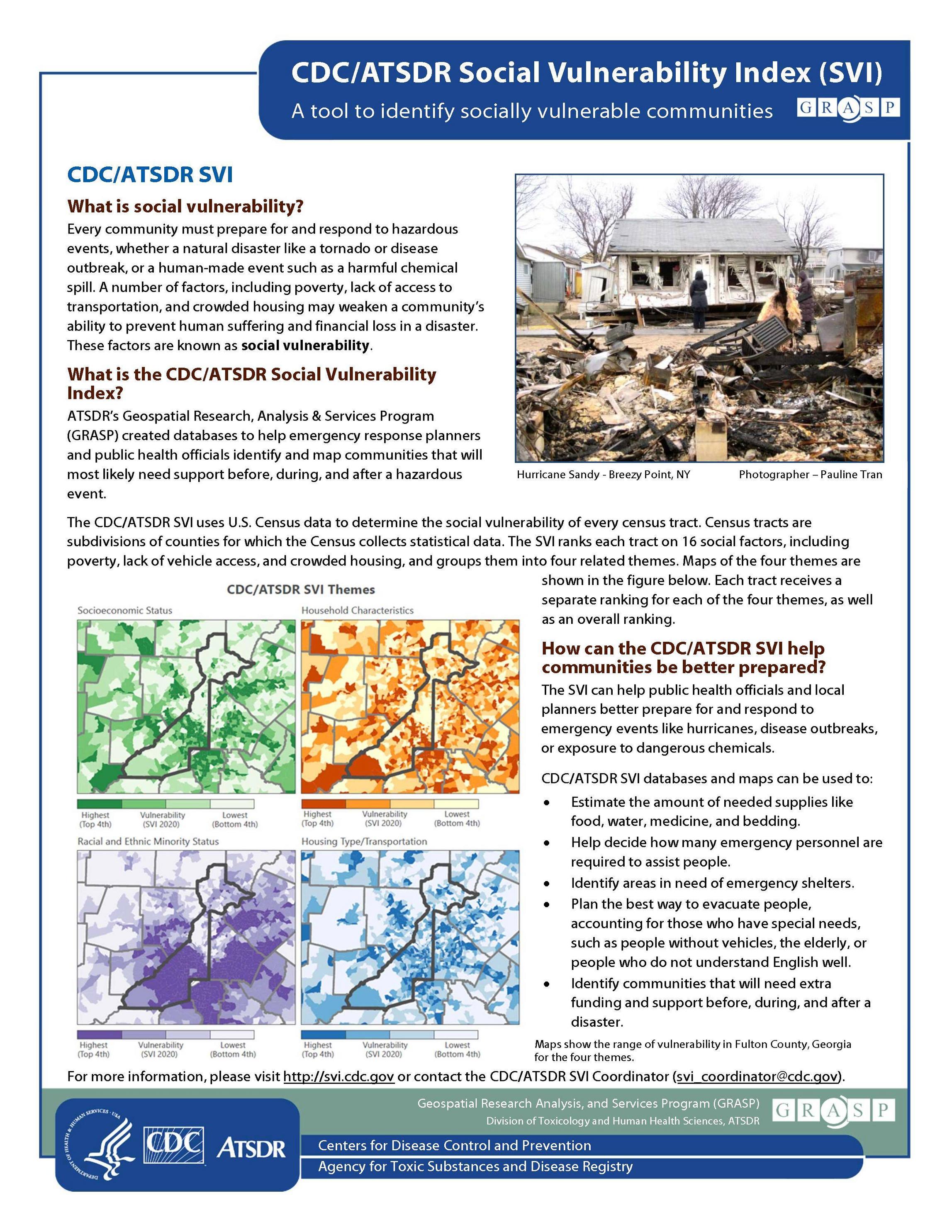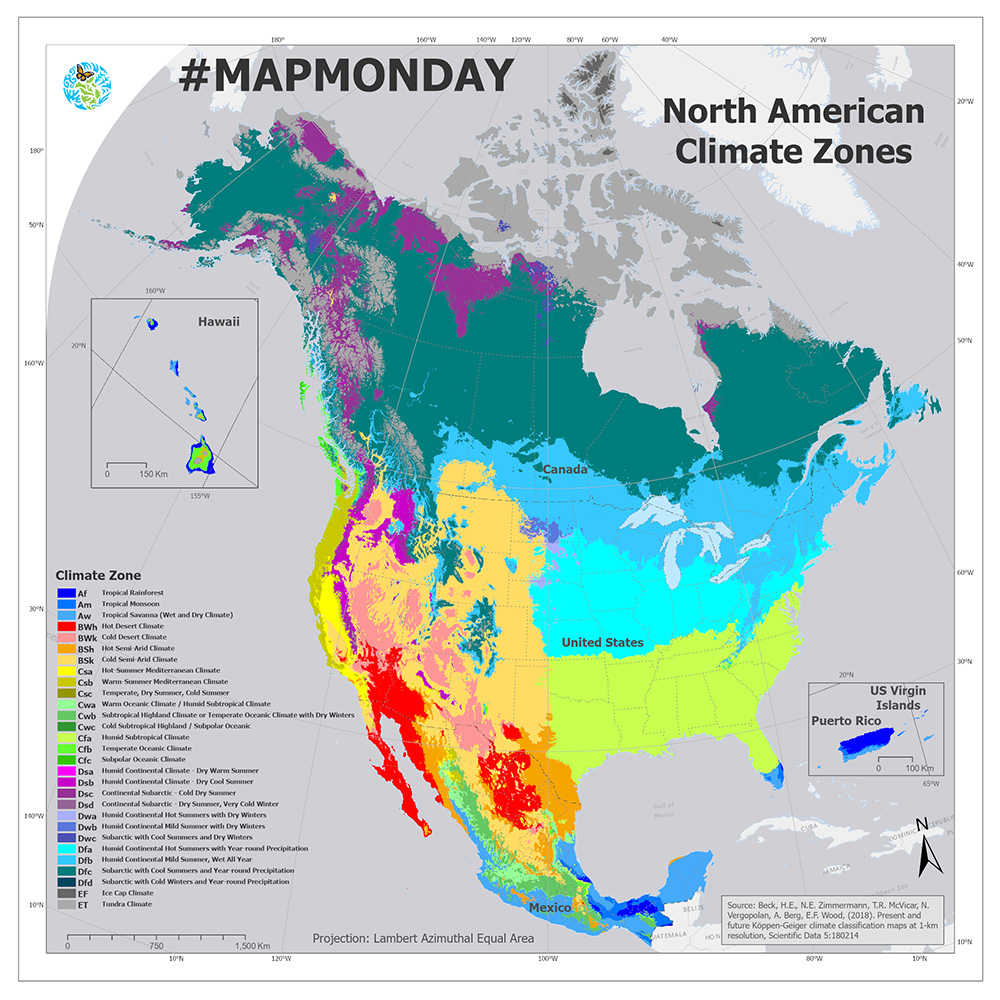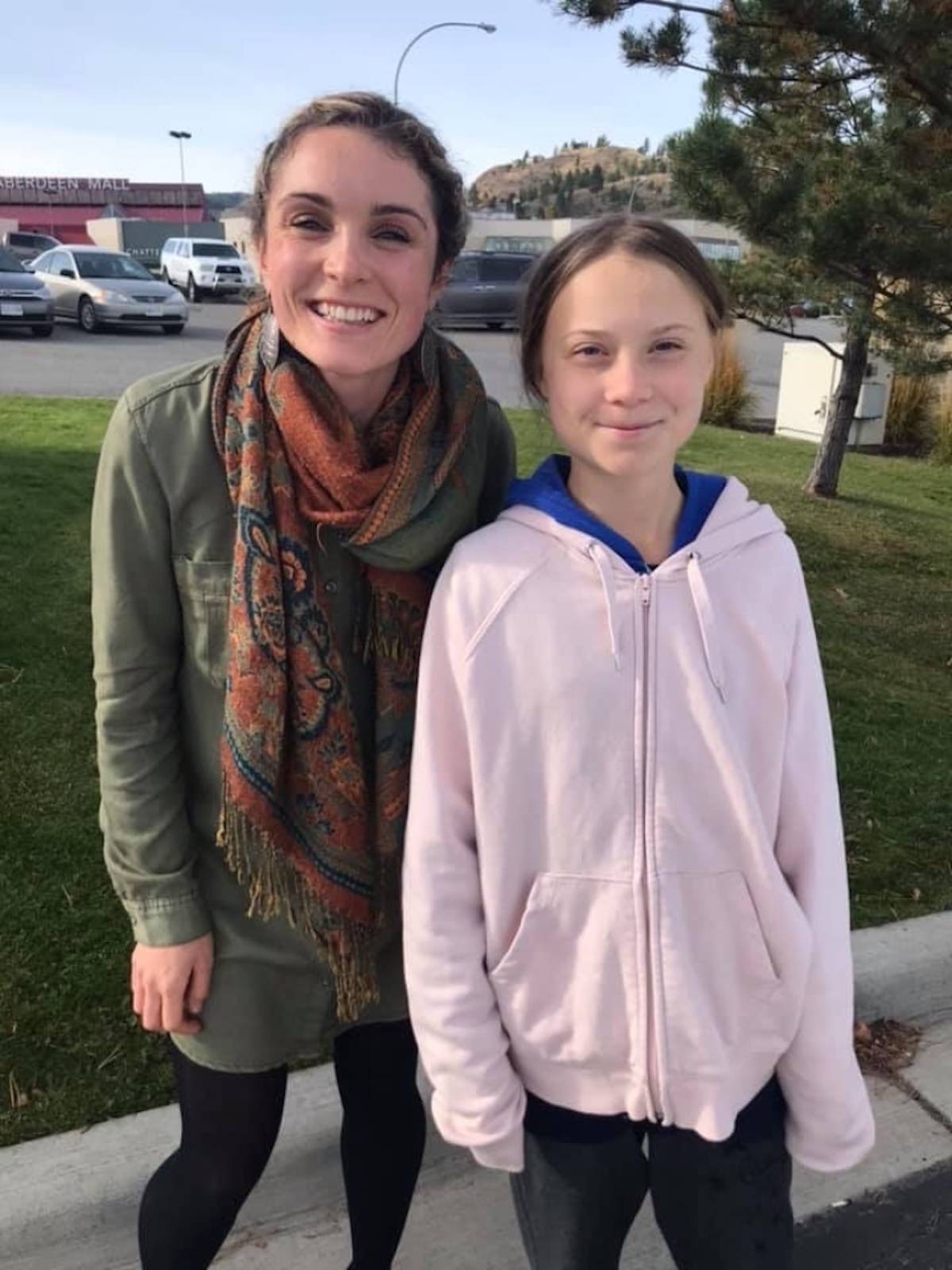
Open-response surveys are a great way to get a sense of how children view climate change. These surveys are based on a range of methods that include interviews and focus groups to gauge kids' interest in science. These surveys have had remarkable consistency over the past ten years.
According to surveys, people who care more about climate issues are more likely than others to see the negative effects of climate change. They also believe that climate change can be mitigated and have a better understanding of how scientists work. They are also more likely believe that proposed solutions for climate change will be successful.

There are three main types. One concerns climate change and another is related to whether it is human-caused. The third concerns climate change's effects on humans. Some questions expressed doubts about climate change. Others asked for evidence that it is happening. Many of these surveys also asked participants to give statements about their plans for action.
The answers to these questions reveal rich and varied ways children think about climate change. Children are often able to use science fiction themes and speculative language. While this indicates that some participants have a basic understanding about climate change it also means that others are creating their own incorrect and intuitive theories.
Participants were often asked to identify the worst aspect of climate change. They often pointed out the potential consequences in the future as similar to those depicted in movies or video games. They could not link future climate change effects with future human-caused or un-human-caused consequences. This result suggests that participants are generating inaccurate theories about climate change, and that if these ideas are not addressed, they could persist indefinitely.
Some of the survey questions were more scientific and speculative in their descriptions of future impacts from climate change. Participants were asked to visualize the future effects of climate-change and to reflect on the impact of climate change on people and animals.

This category included questions about the geographic location of climate-related impacts and the timing and magnitude of those changes. One question required participants to estimate the effects of climate change on the United Kingdom. Another asked about the impact of climate change on the food and agriculture industry.
The most common type of climate change questions were those that addressed the nature of the phenomenon. The most common type of questions on climate change were those that asked people about the causes, current climate and the impact of climate change on their health. With the exception of a few questions that were more specific and general, most of these questions were very broad.
FAQ
What is the role of individual and community members in addressing climate changes?
Climate change is a major contemporary challenge. It is a major issue that affects everyone. Individual action and collective attention are needed to make an impact.
Individuals have a crucial role in helping to address climate change and reduce its effects. Your everyday behaviors could include reducing waste, conscious eating, changing your lifestyle, such as becoming vegetarian, choosing sustainable clothing and decor, and using public transport more frequently. They can also be involved in political advocacy, and encourage initiatives within their communities that foster sustainability.
They are also crucial in addressing climate issues on a wider scale. They can implement policies that limit emissions by reformulating energy models based on renewable sources, promoting efficient infrastructure for cycling or electric transportation, reducing deforestation rates, or encouraging composting systems for waste management. Collaboration is crucial for the achievement of this mission.
Additionally, civic education about the dangers of climate change and ways to help it be tackled should be started in the very early stages of education. It should also be taught throughout lifelong learning opportunities. This will allow individuals to be more aware and connected to other societies, even if they are not located near us.
Employers bear a huge responsibility for combating climate change. It is important that they adopt sustainable corporate practices and use green alternatives wherever possible.
Therefore individuals' actions plus community-wide policies together with business transformation will contribute immensely towards creating solutions against global warming and collectively defending humanity against longer terms harmful effects growing out from climate change.
How can the world work towards a more sustainable future when faced with the challenges of climate change?
Sustainability refers to the ability to satisfy current needs while not compromising future generations' ability to do so. Given the growing challenges presented by climate change, it is urgent that we take drastic measures to reduce our dependence upon finite resources. Also, shift to a more sustainable use of them.
For a more sustainable future it is essential to rethink our current consumption and production models, as we also need to reduce our dependence upon natural resources such fossil fuels. We must look for new technologies and renewable sources of power, as well as systems that lower harmful emissions and still provide our daily needs.
Furthermore, it is crucial to take a holistic approach to sustainability. This means that all aspects are considered, including the materials used, waste management strategies and reuse strategies, as well energy usage in transportation and industry. There are many possible solutions, such as the use of renewable energy like solar, wind, or hydropower; better waste management; increased efficiency of agriculture; improved transport networks; green construction regulations; and sustainable city planning initiatives.
We need behavioral changes to reach this goal across society. Education programs are necessary to help people understand the climate change issues and how they can make a positive contribution towards a more sustainable world.
Only through cooperation between citizens, business leaders, and governments will we ever be able make substantial progress towards creating a sustainable world for future generations.
What are the main causes of climate changes?
Climate change is a worldwide phenomenon caused by an increase of human-generated greenhouse gasses emitted into the atmosphere. This is mainly due to fossil fuel burning for power and transportation. These emissions cause more of the sun's warmth to be trapped in Earth's atmosphere, leading to rising global temperatures.
Climate change is also caused by other factors, such as population growth and land clearing. This decreases the amount naturally occurring carbon sinks that absorb carbon dioxide from the atmosphere. Climate change may also be caused by natural factors such as changes to solar radiation.
These human activities together result in Earth experiencing an overloading of its energy budget. This has caused an average global rise of 1° Celsius over pre-industrial time. Glaciers melt quicker than they form, and sea levels rise because oceans absorb most the heat energy. Other adverse consequences include water shortages and droughts as well as extreme weather events, such as flooding and hurricanes, which are often caused by heavy rains on soils.
We must reduce our carbon footprint, and begin reducing our emissions immediately to protect ourselves from the increasing impacts of climate change. It is essential to reduce our dependence on fossil fuels in order to produce electricity. This can be done alongside investing in renewable energy sources such as wind turbines and solar panels, which emit no harmful pollutants into the atmosphere. You can also restore some balance in these delicate cycles of the planets that sustain us, such as reforestation.
How can climate change impact food security and agriculture?
Global warming and climate change have an immediate impact on agriculture and food safety. The changing climate can impact rainfall patterns and temperatures as well as soil moisture levels. Extreme weather is also possible. This can disrupt farming activities, reduce crop yields and lead to losses of agricultural biodiversity. Warmer temperatures can increase the spread of diseases or pests that can impact crops and can also lead to shifts in the areas suitable for agriculture production. This can increase food production costs, as well as cause hunger and other nutritional problems worldwide.
Rising sea levels present a new threat. They can inundate agricultural land in many coastal locations, leading to increased salinity in wetlands where important crops grow. Livestock production is similarly affected by the changing climate - high temperatures during summer months can reduce fertility rates for animals like cattle, sheep, and goats, resulting in lower milk yields which exacerbate food insecurity across communities.
Global warming and climate changes are interrelated. But, governments around world are working to mitigate the effects of these changes through adaptation strategies. This involves promoting sustainable methods such as crop rotation techniques or genetic diversity through the conservation of native seed varieties, which help protect against negative impacts from extreme weather conditions or other environmental stressors caused by the changing climate. In addition, CSA strategies call for reductions in greenhouse gas emissions through the use of renewable energy sources and the reduction of deforestation-related logging activities.
It is essential that farmers worldwide adopt technologies that are more responsive to changes in the environment when selecting the right crops to grow on specific parcels of land to ensure food security amid a rapidly changing environment. Existing infrastructure must be improved to allow for the appropriate action when necessary. This includes stabilizing irrigation networks that have adequate access to water during periods when there are less water sources due either to extreme downpours or warmer climates. Effective collaboration is key to creating lasting solutions that allow for the continual adherence to international dietary guidelines concerning quality nutrition in changing climates around the world. This includes all levels of government, NGOs and local communities.
What are the effects of climate change on the environment and society?
Climate Change has broad effects on both the environment and society. Climate change has many environmental effects. These include rising global temperatures, increased extreme weather events and sea level rise. These changes can have grave consequences for human population, increasing instability and inflicting insect-borne disease and poverty on a large scale, as well as altering migration patterns and destroying important habitats.
Climate change is already having a wide range of sweeping effects on the environment and societies all over the world. As global temperatures rise, it is likely that this trend will continue in the near future.
One of the most prevalent effects of climate changes worldwide is the rise of ocean levels as a result of melting ice cap. This results in shoreline erosion on many coasts, as well as increased flooding risk for coastal communities. Also, saltwater intrusion occurs, which negatively affects freshwater supplies in coastal areas in many countries.
Extreme weather events such as heatwaves and droughts regularly occur across many countries around the world as a result of climate change. These events lead to massive destruction of homes, businesses, and even the loss of whole communities. In addition, intense storms create further risks related to flooding or landslides that increase damages to infrastructure such as roads and railways.
Climate change is also causing wildfires to become more frequent than ever before. This can have devastating effects on habitats as well as people living near them.
Many people are forced to flee their homes due to drastic changes in their living conditions.
Increased aridity also increases dust storms worldwide with unhealthy air pollution caused by these making it difficult for people who suffer from respiratory illnesses such as asthma especially vulnerable. Pest infestations will increase due to higher temperatures - a phenomenon called the 'greenhouse bug'. This can further impact global food insecurity as fewer crops are available with poorer nutritional qualities, potentially creating additional hardships for marginalized populations that otherwise would be barely able to make ends meet.
How does climate change impact marine life and oceans around the globe?
What is the effect of climate change upon the world's oceans?
Since its inception the climate change has had an impact on the world's oceans, and the marine life within them. The depletion of the ozone layer, which causes constant oceanic warming, has caused major disruptions to marine ecosystems. This has led to coral bleaching and a decline in species.
Climate change may also be responsible for extreme sea level rises and more unpredictable weather conditions, which can prove to be fatal to coastal areas. Also, rising temperatures can reduce the oxygen levels in the water system, leading to "deadzones" that are areas with less marine life.
Ocean acidification can also be caused by climate change. Excess carbon dioxide is released into the atmosphere and accumulates in the oceans. Ocean acidification alters the pH balance, which makes it impossible for some animals, like oysters, crabs, and clams to adapt.
Higher temperatures can also cause changes in natural habitats. They may shrink or change their geographical location, making it unhabitable for species that depend on them. Ocean stress increases already high extinction rates worldwide, creating a severe imbalance of predators and prey which might lead eventually to complete extinction.
The impacts of climate change have rippled through entire ecosystems. They impact multiple species either directly or indirectly through evaporation, decreasing water volumes, or sharp temperature changes. This could jeopardize any sustainable development for fishing and other maritime activities. Overall climate change continues one by one wiping out entire species from our planet transforming future lives on land but most importantly deep below the surface of our oceans.
Statistics
- Fossil fuel production must decline by roughly 6 percent per year between 2020 and 2030. (un.org)
- This source accounts for about 10% of all the water that enters this highly productive farmland, including rivers and rain. (climate.nasa.gov)
- This source accounts for about 10% of all the water that enters this highly productive farmland, including rivers and rain. (climate.nasa.gov)
- According to the 2014 report on Climate Change Impacts, Adaptation, and Vulnerability (page 8) from the United Nations Intergovernmental Panel on Climate Change, governments at various levels are also getting better at adaptation. (climate.nasa.gov)
- According to the 2014 report on Climate Change Impacts, Adaptation, and Vulnerability (page 8) from the United Nations Intergovernmental Panel on Climate Change, governments at various levels are also getting better at adaptation. (climate.nasa.gov)
External Links
How To
How to include sustainable practices in your daily life to combat climate changes
Reducing your consumption of energy and food is one way you can integrate sustainable practices into your day. You can shop secondhand or borrow items from friends and family instead of purchasing new items every day. A vegetarian diet once or twice a month can help to reduce the amount of methane that is released into the atmosphere by reducing livestock production. Turn off lights whenever you are leaving a room in order to conserve energy.
A second way to combat climate change is to reduce emissions from transport sources such as cars and planes by carpooling or using public transit instead. In place of traditional fossil fuels, we can choose to use renewable power sources such solar panels to generate electricity at our homes. To make climate change action effective, it is important to support policies that promote clean air regulations. Finally, engaging with others around issues like ending plastic pollution and deforestation is hugely beneficial since it creates more conscious citizens who will act upon their knowledge!